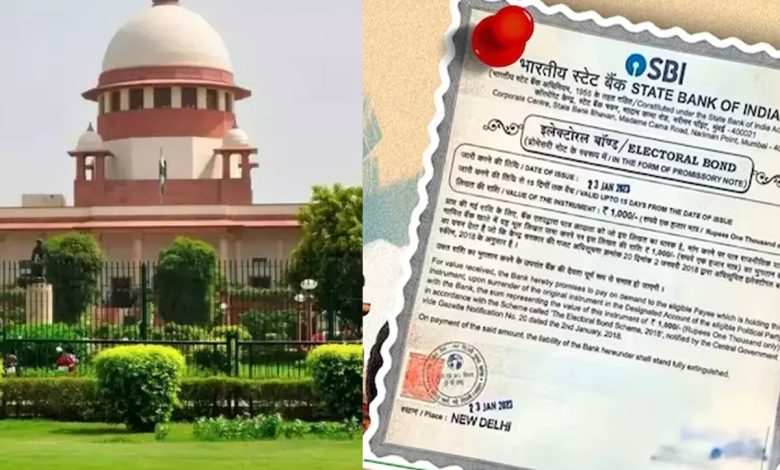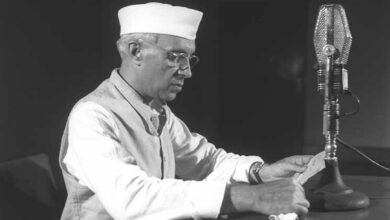With advent of the upcoming Lok Sabha elections 2024there have been issues and concerned raised by the journalists and opposition of our country but the issue that became one of the most alarming issues in the current political landscape and drew attention of the entire media and masses was: Electoral Bond Scam. India as a country has been a land of one the major financial scams and history is a testimonial to it to name them, we have The Harshad Mehta Scam, Colgate Scam, Commonwealth Scams,the 2G scam and there are many more to the list, but this tops the list because the wealth of people has been looted by the political class and their infringement in the working bodies of the government is something at the level of concern.
The electoral bond scam has beenthe talk of the town for the current political landscape. As we begin to speak of the electoral bonds it is important for us to understand what is the actually provision that the bond is serving. So, to speak of the electoral bonds the bonds were introduced by the BJP government in the year 2017. The electoral bonds were meant for donations that were to be made to the political parties of the country by the donors. This was done to facilitate political funds by the donors. The most unique feature as per books stated that identity the donor of the donor was of unparallel protection and anomality was to be maintained. This from the very beginning was something that was criticized by many people of the political society itself. This scheme has received backlash and got into the light of controversy on grounds of hampered transparency and fairness. The bonds were to be bought from The State Bank of India (SBI). The amount of electoral bonds received as per reports suggest is that of 20,000 crores for all the political parties included. When the rules of the bonds were framed; one of the most important pointers to be noted was that electoral bonds donated to which every political party if not encased within 15 days becomes a part of the Prime Minister’s relief fund.
“As to speak of the figures The scheme was introduced in The Finance Bill, 2017 during the Union Budget 2017-18 by then Finance Minister Arun Jaitley. They were classified as a Money Bill, and thus bypassed certain parliamentary scrutiny processes, in what was alleged to be a violation of Article 110 of Indian constitution. Mr. Jaitley also proposed to amend the Reserve Bank of India (RBI) Act in order to facilitate the issuance of electoral bonds by banks for the purpose of political funding.Although introduced in early 2017, the Department of Economic Affairs in Ministry of Finance notified the Electoral Bond Scheme 2018 in a Gazette only on 2 January 2018.According to an estimate, a total of 18,299 electoral bonds equivalent to a monetary value of ₹9,857 crore, were successfully transacted during the period spanning from March 2018 to April 2022.On 7 November 2022, the Electoral Bond scheme was amended to increase the sale days from 70 to 85 in a year where any assembly election may be scheduled. The decision on Electoral Bond (Amendment) Scheme, 2022 was taken shortly prior to the assembly elections in Gujarat and Himachal Pradesh, while the Model Code of Conduct was implemented in both the states.”
In the case of electoral bond scam the most landmark decision taken by the Supreme court of “On 15 February 2024, a five-judge Constitution Bench led by Chief Justice D.Y. Chandrachud unanimously struck down the Union’s 2018 Electoral Bonds (EB) Scheme. The Bench held that the Scheme violated the voters’ right to information enshrined in Article 19(1)(a) of the Constitution. “Information about funding to a political party is essential for a voter to exercise their freedom to vote in an effective manner,” they said.” ~ Supreme Court Observer
Ex Quint journalist Poonam Agarwal’s investigation had revealed presence of alphanumeric codes on electoral bonds. The investigation mentioned about important facts that the bonds could not purchased in any form other than cheques and with necessary KYC details and as per guidelines mentioned anonymity of the donor is of utmost importance. After the story being published for the very first time the Finance ministry came up with press statement where they for the very first time spoke about the alphanumeric code being present which was only visible under ultraviolent light which showed how the government has mislead the public in order continue the smooth function of the political funding. When asked to the prime minister about the scam the defense to it is rather a customary one where the Prime Minister states that the bond was important to keep a track on the black money and that opposition lacked the transparency from the citizens.
As per the latest decision by the apex court on the 15thOf February the EBS was struck down by the Supreme Court and a notice was sent to the State Bank of India to reveal all the details of the donor and political donations done. This was a big shock to the current government’s fund collecting structure. The court’s decision to strike down the EBS is a cause for celebration, bringing transparency and strengthening democracy. However, some worry it throws us back to a system rife with “suitcase cash.” While the EBS wasn’t perfect, it potentially offered a legal framework for corporate funding, perhaps even a step towards addressing the problem of hidden money in elections.
With the modern-day economic scenario of India, the exposing of the electoral bond scam is now acting as a big eye opener for the citizens. The electoral bond system was facilitating illegitimate political funding and quid pro arrangement. It was seen many of the corporate houses have been given multinational projects by the government and have repeatedly awarded with it and also the companies not involved in the political funding have been under the treat of ED, CBI etc. This was a clear link showing the political mafia that is being run in the system showing the dictatorship control of the government.
As per reports of Business Standards “As per the released data, the total amount encashed via the electoral bonds was Rs 12,145.87 crore. While the BJP’s donor list had nine companies who gave over Rs 100 crore to the party, the Congress and Trinamool Congress had only two each, and two regional parties, BRS and DMK, had one donor each.According to the SBI data, the Bharatiya Janata Party (BJP) was the biggest beneficiary of its electoral bonds scheme, which the ruling party had introduced in 2019. The richest national party received donations to the tune of around Rs 6,000 crore from various companies, mainly Megha Engineering, Qwik Supply Chain, Vedanta, and Bharti Airtel, among others.
The ruling party received donations of over Rs 100 crore from 9 companies, the highest on the list. While Megha Engineering- a Hyderabad-based infrastructure firm- donated Rs 519 crore, Qwik Supply was the second highest donor with Rs 375 crore. Vedanta, Bharti Airtel, and Madanlal Ltd each gave Rs 226 crore, Rs 183 crore, and Rs 175.5 crore. Other significant contributors included Birla Carbon India (Rs 105 crore) and lottery firm Future Gaming and Hotel Services (Rs 100 crore), among others.
According to reports, Madanlal Ltd, MKJ Enterprises and Keventers Food Park share the same address in Kolkata. Madanlal Ltd mentions on its official website that it is a part of the MKJ and Keventers Group of companies, both of which have made separate donations to the BJP and other parties.”
The report further suggests that “The Indian National Congress fell behind the BJP by quite some margin in reaping the benefits of the bonds scheme. The national party received a total of Rs 1,351 crore. The biggest donor to the party was Vedanta Ltd at Rs 125 crore, while Western UP Power Limited- a Megha Enterprise Group’s subsidiary- gave Rs 110 crore. It is important to note that Megha Engineering was the top contributor to the BJP.”
In conclusion, the electoral bond scam represents a significant threat to the integrity of our democratic process, undermining transparency and accountability in political funding. The lack of disclosure requirements for donors, coupled with the potential for foreign influence and corporate manipulation, compromises the foundational principles of fair and free elections. It is imperative that regulatory bodies, policymakers, and the public demand stricter oversight and reforms to ensure that political donations are transparent and accountable. Only through collective action can we safeguard the sanctity of our electoral system and restore public trust in the democratic institutions that form the bedrock of our society.





